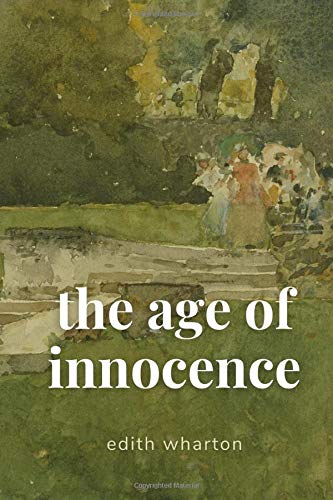A So-So Classic with Unlikable Characters
Author: Edith Wharton
Newland Archer, former lover of a married woman, has sown his wild oats. He is ready to settle down, yet he hopes that his new wife, May Well, will be open to his ideas. Despite having chosen May and wooed her for her societal prestige, her cosseted goodness, her forced innocence, he has ideas about the liberation of a woman’s mind. He is at war with himself – with what he says he wants and what he really wants. But he realizes none of this.
Enter the Countess Olenska, a distant relative of May and a former childhood friend (and secret crush) of Archer’s. The Countess is quite different from May. She has lived in a foreign land so long that she has adopted the customs. She is surprising, unconventional, brusque, and above all honest beyond the comfort level of polite society. Worst of all, she has left her husband. She is pursuing a divorce, and because she is May’s family and therefore soon to be Archer’s family, he becomes involved with the dramas of her life and the futility of her rebellion.
When I was a child, my mom had Age of Innocence in a slick hardcover. Mom’s edition had a secretive, Renoir looking woman in a white dress looking knowingly over her shoulder, hand entwined with a blurry gentleman. Something about that non-innocent look coupled with the title always intrigued me. A novel of scandal – of forbidden thwarting of society – is absolutely my cup of tea. So, imagine my surprise when within a few minutes of the Audible unabridged reading I felt bored, then as closeted as the complaining characters who built the prison of their own demise
First, no one here is sympathetic, except in a small way the betrayed May. Newland talks a big talk, even admits the hypocrisy of a society that is more or less fine with his affair with a married woman (boys will be boys and all that) but would ultimately ostracize a woman for the same infraction. He is self-aware – to a point – and has some grand, well-meaning ideas. But he is just as much a creature of his society as everyone else. Of course, that’s the point. But it’s a point that doesn’t endear us to the duplicitous Newland, who hates his wife May for the very reasons he chose her. He married her with the idea of “I can change her,” and when that failed, he despised her. Likewise, his casual betrayal and the very fact that he is marrying to use someone makes him a despicable person.
The Countess is a little more likable, but ultimately aloof. The love affair is concocted to make a point and never feels organic. The decisions of all parties involved are stupid and reliably disastrous. As with most people, what they talk about and esteem and what they do are two separate realities.
In the end, we have the lesson. Newland and the Countess want to break free, but ultimately cannot, even when the society around them becomes less restrictive. They are creatures of their time and place, unable to embrace across the gulf of obligation and social politeness. They are both very selfish, very standoffish, and the greatest fools of the story for their alleged superiority.
Of course, the story is beautifully written, the moral plain, the point knife sharp and evidentially true. Yet the slow pace and unlikable characters made this classic just a so-so experience for me.
– Frances Carden
Follow my reviews on Twitter at: https://twitter.com/xombie_mistress
Follow my reviews on Facebook at: https://www.facebook.com/FrancesReviews
- Book Vs Movie: The Shining - April 6, 2020
- Thankful For Great Cozy Mysteries - December 13, 2019
- Cozy Mysteries for a Perfect Fall - October 20, 2019



